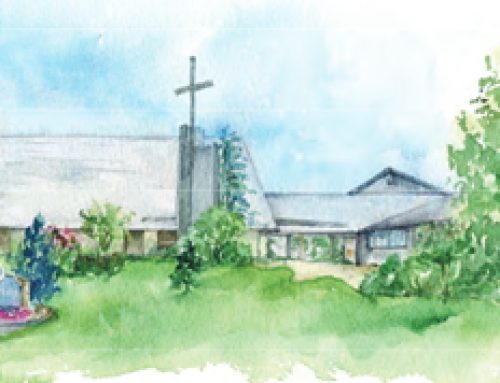FROM THE PASTOR’S DESK
Dear Parishioners,
Jesus often uses parables to make us think, to reveal something about the Kingdom of God and about our role in making that kingdom happen. In his parables, Jesus usually draws upon common human experiences that we all know—planting a seed, making bread, hiring workers. But Jesus is not a slave to our experience. In fact, he can at times introduce into his parables things that would never happen in our lives. He does this to make a point and to show us that the Kingdom of God is sometimes very different from the world in which we live.
Today’s parable of the weeds and the wheat is a good example of this practice. When the landowner finds out that there are weeds growing with his wheat, he tells his servant to let them grow together until harvest time. Now, no farmer of the ancient world or of today would say that. When you see weeds growing up with your tomato plants, you pull the weeds out. You know that if the weeds grow along together with the plants, they will sap moisture and nutrients from your garden, and the tomato plants will suffer.
So, why does Jesus say in the parable that the weeds and the wheat should grow together? What’s his point? A clue is given to us in the advice of the landowner to the servants. He says, “If you pull up the weeds, you might pull up the wheat along with them.” It seems that in the world of Jesus’s parable, it is difficult to separate weeds from wheat, to distinguish which is which. Again, this is not true in our own experience. In your garden, when something begins to come up out of the soil, you can tell almost at once what is a tomato plant and what is a weed, and you pull the weeds out. But in Jesus’s parable and in the Kingdom of God, it is not so easy. Therefore, it is better to wait, to wait as long as we can before acting because something that appears to us as a weed might in time be revealed as wheat. This parable of Jesus is really a parable about patient vigilance. It calls us to wait and give time to circumstances and people in our lives as long as we can, until their true characteristics emerge. There might be someone in your family who is making a mess of their life, one wrong decision after another, going along without purpose or guidance. But, before you cut that person off, this parable advises you to wait, to offer as much wisdom and love as you can and then see what might begin to grow. You do not need to pull up the weed today. There might be someone at work or in your neighborhood who is negative and difficult. But before you distance yourself from that person, this parable advises you to wait, to treat that person with honesty and respect and see what develops. There might be a circumstance in the church or in our government that you see as harmful and damaging. But before you give up, this parable asks you to stand for what you believe and wait with patience because the harvest has not yet come.
Now, there’s nothing in Jesus’s parable that tells us we should become indifferent to what is wrong or to tolerate injustice. But what this parable does tell us is that we can often make judgments prematurely and in a misguided way. And because we believe that God is always working to bring about what is life-giving and good in our world, it is better to wait with patient vigilance until we are sure that we can distinguish the weeds from wheat.
Peace,
Fr. Monteleone
To read the complete bulletin click here



